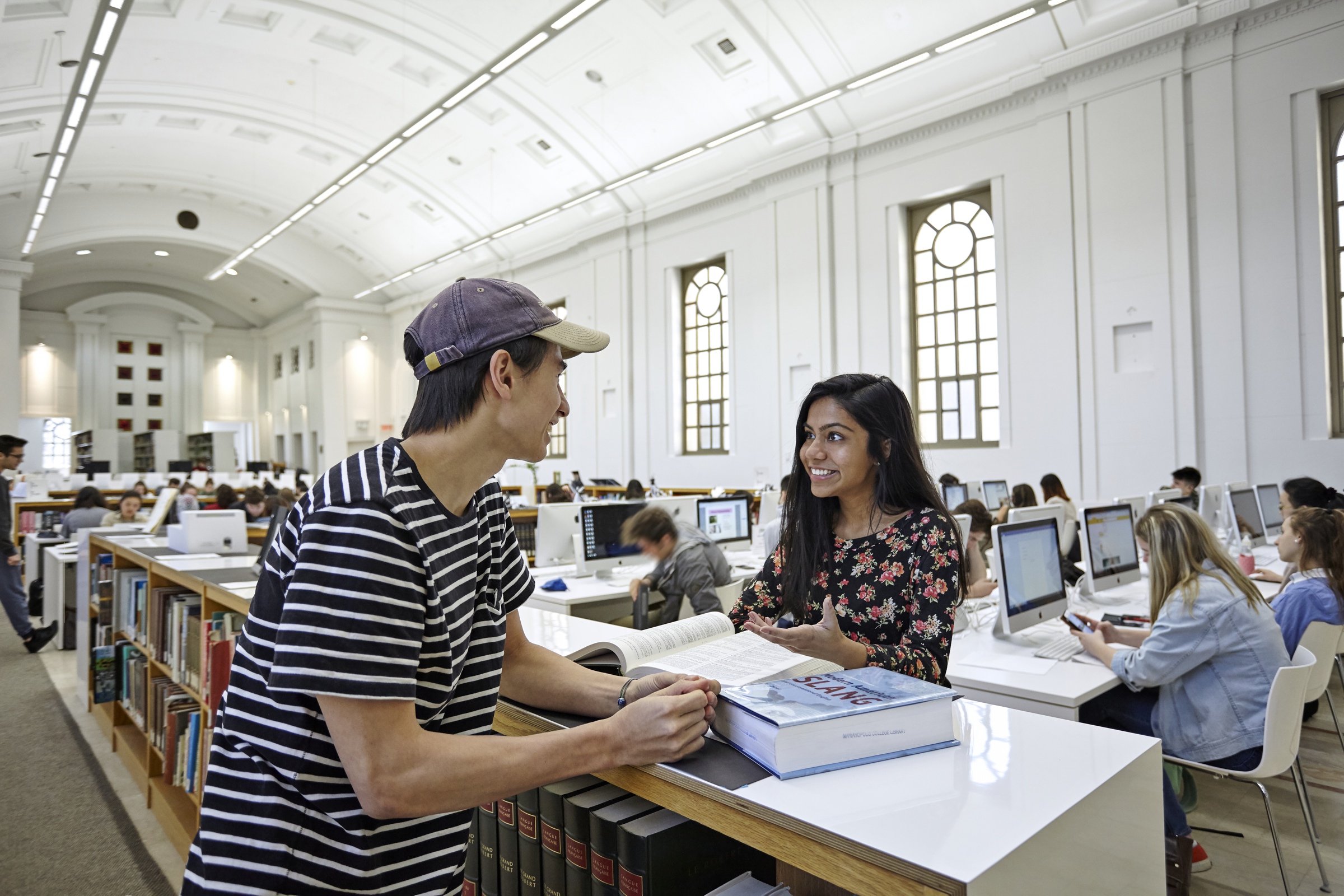Pre-University Programs

Marianopolis College offers pre-university academic programs that lead to a DEC (Diplôme d’études collégiales).
We offer the following two-year pre-university programs:
We also offer the following Double DEC programs, which allow students to complete the requirements for two DECs in three years:
UNDERSTANDING GENERAL EDUCATION AND SPECIFIC EDUCATION
All programs leading to a DEC are composed of two groups of courses, General Education and Specific Education. Courses in each group are developed by the College and tied to objectives defined by the Ministère de l’Enseignement supérieur (MES) for each program.
- Specific Education courses make up the core instruction of the program. They provide you with the specialized knowledge that you need to excel in particular university programs.
- General Education courses are common to most programs. They help you build a strong foundation for university studies and, combined with Specific Education courses, develop the competencies required by the entire program, including solving problems, thinking critically and creatively, adapting to new situations, exercising a sense of responsibility and communicating effectively.
All students take General Education courses in English, Humanities, Physical Education and French. Certain students in some programs also take Complementary courses, which are courses chosen from disciplines outside of their program.
GENERAL EDUCATION COURSE OVERVIEW
ENGLISH COURSES
English courses help you develop English-language writing and analytical skills that are critical to succeeding at university and beyond. Students take four English courses, one course from each of these categories:
Introduction to College English
This first-semester course helps you transition from high school. It introduces you to college-level studies in literature and helps you write an academic essay. You study at least two literary genres and are encouraged to develop your ability to analyze and write about literature.
Literary Genres
This second-semester course focuses on the study of one literary genre (e.g. novel, poetry, short story and drama) and continues to develop your thinking and communication skills.
Literary Themes
The third-semester course focuses on examples of literature which illustrate a particular theme or idea through a variety of literary texts and continues to develop analytical, reading and writing skills.
Adapted to Program
The fourth-semester course focuses on specialized areas of communication and provides guidance and practical experience in specialized skills.
FRENCH COURSES
French courses help you develop the French-language speaking, writing and analytical skills that are an essential part of participating fully in the cultural and professional life of Quebec. The number and type of French courses you take depends on whether you have a certificate of eligibility for English-language education, and if so, how strong your level of French is.
- If you have a certificate of eligibility, you will take two French second-language courses, and, either three additional French second-language courses to improve your French skills, or three program courses in French.
- If you do not have a certificate of eligibility, you will take three French literature courses and two program courses in French.
HUMANITIES COURSES
Humanities courses deal with human achievements and ideas. They teach you to think independently about society's values and challenges. You take three Humanities courses, one course from each of these categories.
Knowledge
These courses focus on how human knowledge is acquired, analyzed and used. They also emphasize how societal values affect these ways of knowing.
World Views
Societies, nations, cultures, individuals and people throughout history have different ways of seeing the world. World Views courses explore and compare the way human groups see themselves.
Ethics
These courses examine ethical and social issues and build on the skills you have developed in your Knowledge and World Views courses.
PHYSICAL EDUCATION COURSES
Physical Education courses promote a healthy lifestyle through a variety of physical activities. In your first year, you take a Physical Activity and Health and a Physical Activity and Effectiveness course. In your second year, you choose one Physical Activity and Autonomy course.
Physical Activity and Health
This course is designed to help you realize how an active lifestyle promotes overall health.
Physical Activity and Effectiveness
This course gives you the opportunity to add a new skill to your activity repertoire or improve the skills you have.
Physical Activity and Autonomy
This second-year course integrates the material from your two previous physical education courses. You design a safe and effective personalized physical activity program in order to demonstrate that you lead an active lifestyle.
COMPLEMENTARY COURSES
Complementary courses expose you to new areas and help broaden your studies. Depending on your program and your particular situation, you can take Complementary courses chosen from disciplines outside of your program (under review by the Ministère de l'Enseignement supérieur).
END-OF-PROGRAM REQUIREMENTS
In addition to completing their courses, all students must successfully complete two "épreuves" in order to obtain their DEC:
- The Comprehensive Program Assessment (Épreuve Synthèse de Programme) is completed in the last semester and is defined by the faculty for each program.
- Either the English Exit Exam for students who have a certificate of eligibility for English-language education, or the French Exit Exam (Épreuve uniforme de français) for students who do not have a certificate of eligibility. These exit exams are set and marked by the Ministère de l’Enseignment supérieur.
